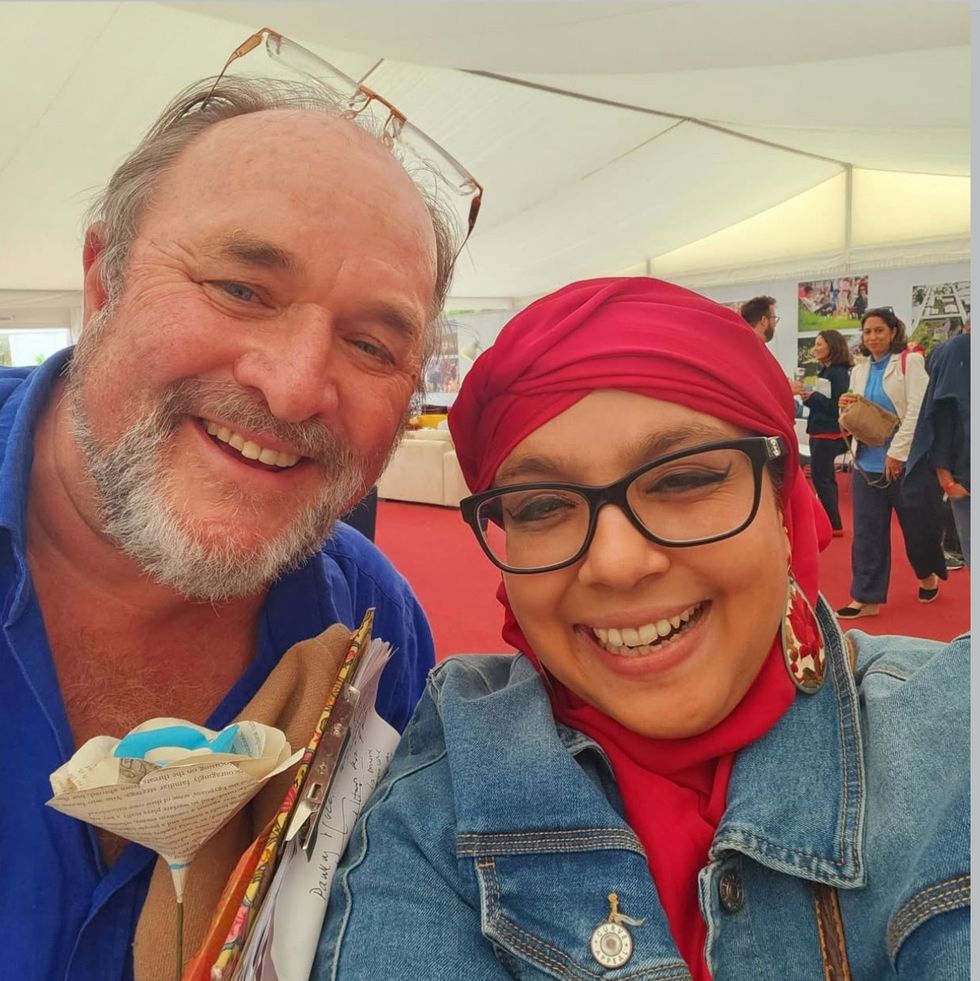by PHILIP HAMMOND
Chancellor of the exchequer
I’M DELIGHTED to be here tonight at the Asian Business Awards, 22 years after the first of these fantastic events, in 1997, the year I was first elected to parliament.
Quite a bit has changed since then. I’ve got a bit greyer, and the Asian business community in the UK has gone from strength to strength.
Asian markets have become more and more important to British businesses and the global bal- ance of economic power has shifted decisively in favour of the emerging Asian economies.
Later this year, India will overtake the UK to be- come the world’s fifth largest economy.
But some things haven’t changed – my beliefs when I first became an MP are the same things that drive me 22 years later as chancellor.
A belief in the market economy as the best, in- deed, the only way to deliver future prosperity for the British people; a belief in Britain as an open, tolerant, outward-looking nation, confident and competitive in the world; and above all, a belief in the power of business – that self-starters, entrepreneurs, investors are the engine of our economy, and the bedrock of our communities.
Our job in government is to reinforce that vision and support successful business leaders like you to power up the British economy for the 21st century. First, let me say a few words about the horrifying terrorist attack in New Zealand two weeks ago, and in the Netherlands just a few days ago.
Violence of any kind against innocent people is deeply shocking and attacks based on race, ethnicity or religion are particularly abhorrent and have no place in our society.
Our thoughts and prayers are with the people of Christchurch and Utrecht, with the families and friends of those who died in these attacks and with all those who have been injured or affected by them. But it is not enough only to condemn. As we confront the ideologies of hate, we must also make a positive argument for the kind of society we want to be – a democracy built on the indivisible foundations of religious, political and economic freedom; a society confident enough in our identity and our values to embrace diversity; and an economy that harnesses the power of that diversity to grow.
Market capitalism has been the greatest engine for prosperity the world has ever seen, but it has also been the driver of political freedom and stability.
In the marketplace, the common interest of commerce means that faith or ethnicity, class, background or nationality all matter less than your ability to strike a deal, develop a brilliant new product or service, or to spot an opportunity.
Those values of enterprise and tolerance have long been part of the British story.
And they are a part of the British Asian story too. My friend and colleague, Sajid Javid, the home secretary, asks the rhetorical question – how many countries can genuinely say that the son of a penniless, immigrant bus driver can become the hold- er of one of the most powerful political offices in the land, in the space of a single generation?
Energy, ingenuity and hard work: those are the qualities that have driven all of you in this room to become some of the most successful businessmen and women in the country.
And that is what tonight is all about.
A celebration of the men and women who are nominated for awards later this evening.
A celebration of the vital role the Asian community has played in modern Britain’s success.
And a celebration, too, of the power of business and enterprise to do good.
And of the willingness of so many who have done so well, to plough the proceeds of their good fortune and hard work back into our society through philanthropy.
As a Conservative, I’m clear that it’s the private sector that drives growth and prosperity in society. So our guiding mission, as we leave the Europe- an Union, is to make sure Britain continues to be a great place to do business.
And we have a plan to do that.
First, as I set out in my spring statement last week, despite the slowing global growth, Britain’s economy has defied expectations.
It has grown for nine consecutive years, with the longest unbroken quarterly growth run of any G7 economy and is forecast to continue growing in each of the next five years.
And thanks to the hard work of the British people, our debt is now falling sustainably for the first time in a generation.
It is a solid foundation as we build Britain’s future. Second, we have a plan to raise Britain’s productivity and boost growth.
We are increasing public investment to its high- est sustained levels in 40 years, with a £37 billion National Productivity Investment Fund and record investment in our roads, railways and broadband.
We are putting technical and vocational skills back at the heart of our education system; so that as digitisation of our economy changes the labour market, our workforce is ready to take on the jobs of the future.
And we are cutting taxes on the wages people earn and on the businesses that employ them, with 32 million people receiving a tax cut from next month, and business enjoying the lowest rate of corporation tax in the G20.
But Britain’s future prosperity will be at risk if we leave the EU without a negotiated deal and a close future partnership.
The member states of the EU are our nearest neighbours and they are our largest trading part- ners. Over 45 years, we have built close business and trading relationships and complex supply chains which criss-cross our continent.
As business people, you will understand that it is those carefully constructed and painstakingly maintained relationships that underpin the value of a business, and we must protect that investment at all costs.
There will be change ahead as we navigate a path to a new relationship, so we will need to adapt.
But Brexit will be our chance to show that we can combine a strong and continuing partnership with the EU, with a new focus on building on our historic overseas relationships, and forging new links with the fastest-growing economies of the world, many of which are in south and southeast Asia.
Nearly three years on from the EU referendum, I know the ongoing uncertainty is damaging for business and I know that every one of you in this room would like us to have resolved this issue many months ago.
But democracy is a messy business: Churchill famously described it as the worst form of government, except all those other forms that have been tried.
But we are now in the final furlong.
And I’m confident that we are on track to get a deal – as we must.
And when we do, all the pieces are in place for our country to thrive: strong economic foundations; sound public finances; world-leading businesses; a cutting-edge tech sector; a global services industry; a vibrant, entrepreneurial class; a deep commitment to free and open markets; and an open and tolerant society; I look forward to the day, very soon I hope, when I, and you, can stop talking about Brexit and get on with the business of business – investing, creating jobs, and generating wealth.
So that we can get back to the growth in our economy and the progress in our society that our people expect and deserve.
I know we can do it together.
- This is an edited version of Philip Hammond’s keynote speech at the Asian Business Awards last Friday (22).





 LONDON, ENGLAND - JUNE 22: Baroness Floella Benjamin speaks during the unveiling of the National Windrush Monument at Waterloo Station on June 22, 2022 in London, England. The photograph in the background is by Howard Grey. (Photo by John Sibley - WPA Pool/Getty Images)
LONDON, ENGLAND - JUNE 22: Baroness Floella Benjamin speaks during the unveiling of the National Windrush Monument at Waterloo Station on June 22, 2022 in London, England. The photograph in the background is by Howard Grey. (Photo by John Sibley - WPA Pool/Getty Images)









 Ed Sheeran and Arijit Singh
Ed Sheeran and Arijit Singh Aziz Ansari’s Hollywood comedy ‘Good Fortune’
Aziz Ansari’s Hollywood comedy ‘Good Fortune’ Punjabi cinema’s power-packed star cast returns in ‘Sarbala Ji’
Punjabi cinema’s power-packed star cast returns in ‘Sarbala Ji’ Mahira Khan
Mahira Khan ‘Housefull 5’ proves Bollywood is trolling its own audience
‘Housefull 5’ proves Bollywood is trolling its own audience Brilliant indie film ‘Chidiya’
Brilliant indie film ‘Chidiya’  John Abraham
John Abraham Hina Khan and her long-term partner Rocky Jaiswal
Hina Khan and her long-term partner Rocky Jaiswal  Shanaya Kapoor's troubled debut
Shanaya Kapoor's troubled debut Sana Yousuf
Sana Yousuf



 Shraddha Jain
Shraddha Jain Arundhati Roy
Arundhati Roy William Dalrymple and Onjali Q Rauf
William Dalrymple and Onjali Q Rauf Ravie Dubey and Sargun Mehta
Ravie Dubey and Sargun Mehta Money Back Guarantee
Money Back Guarantee Homebound
Homebound Guru Dutt in Chaudhvin Ka Chand
Guru Dutt in Chaudhvin Ka Chand Sarita Choudhury
Sarita Choudhury Detective Sherdi
Detective Sherdi